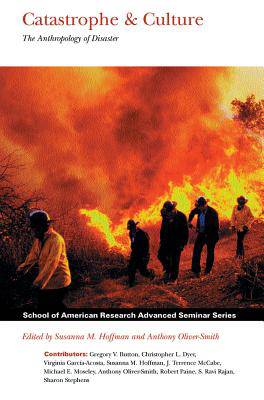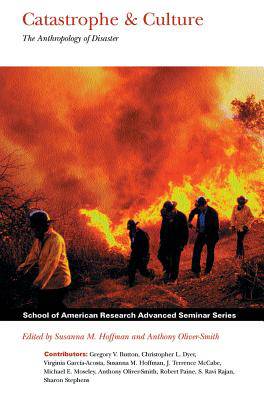
- Retrait gratuit dans votre magasin Club
- 7.000.000 titres dans notre catalogue
- Payer en toute sécurité
- Toujours un magasin près de chez vous
- Retrait gratuit dans votre magasin Club
- 7.000.000 titres dans notre catalogue
- Payer en toute sécurité
- Toujours un magasin près de chez vous
Catastrophe and Culture
The Anthropology of Disaster
Description
At a time of increasing globalization and worldwide vulnerability, the study of disasters has become an important focus for anthropological research-one where the four fields of anthropology are synthesized to address the multidimensionality of the effects to a community's social structures and relationship to the environment. Using a variety of natural and technological disasters-including Mexican earthquakes, drought in the Andes and in Africa, the nuclear meltdown at Chernobyl, the Exxon Valdez oil spill, the Oakland firestorm, and the Bhopal gas disaster-the authors of this volume explore the potentials of disaster for ecological, political-economic, and cultural approaches to anthropology along with the perspectives of archaeology and history. They also discuss the connection between theory and practice and what anthropology can do for disaster management.
Spécifications
Parties prenantes
- Editeur:
Contenu
- Nombre de pages :
- 328
- Langue:
- Anglais
- Collection :
Caractéristiques
- EAN:
- 9781930618152
- Date de parution :
- 01-03-02
- Format:
- Livre broché
- Format numérique:
- Trade paperback (VS)
- Dimensions :
- 156 mm x 232 mm
- Poids :
- 439 g






